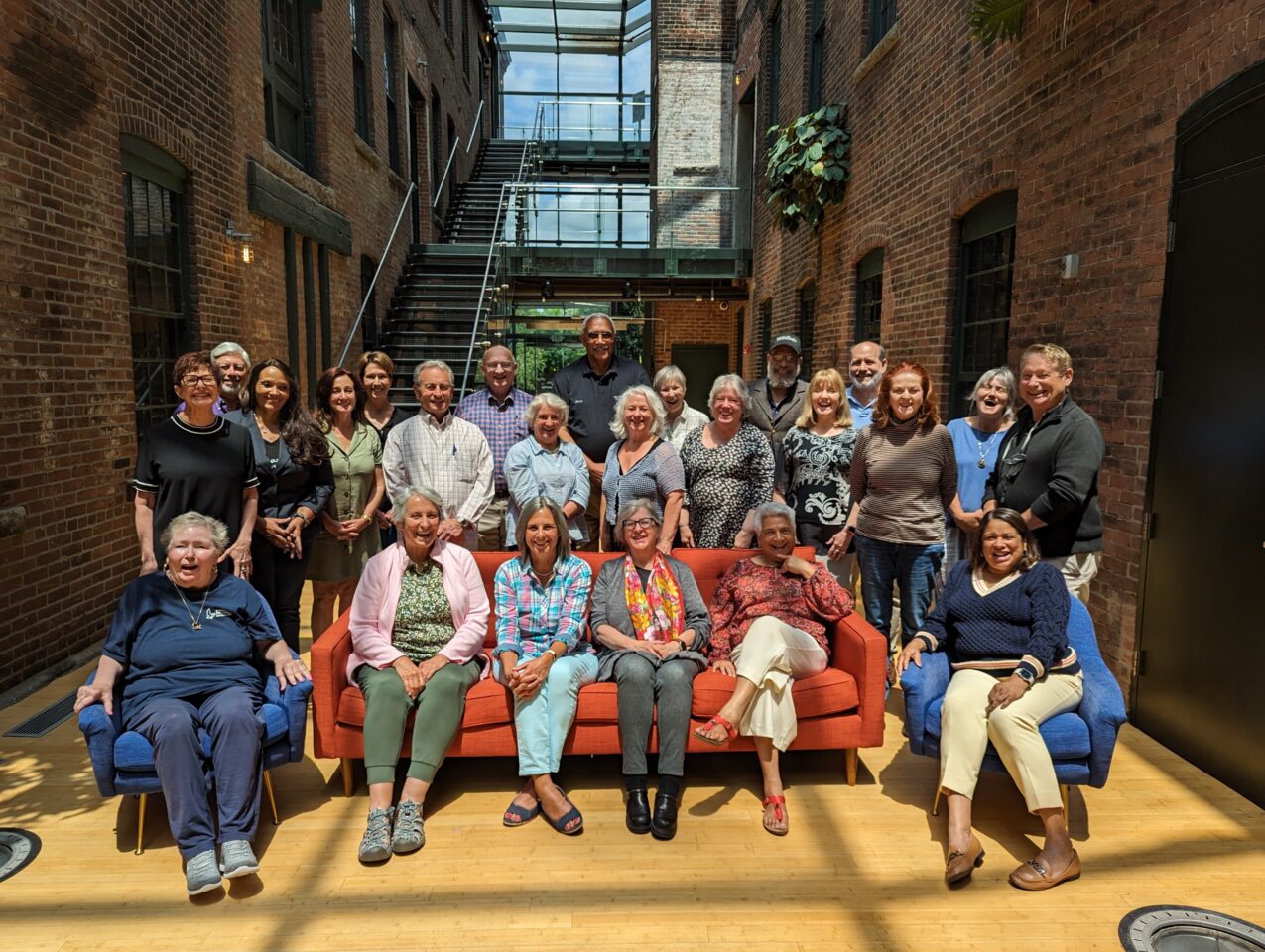By Herb Weiss, 2012 Theta II | 12/28/23
LRI and Age Friendly Rhode Island develop Senior Fellows Program

When Gilda Hernandez learned about Leadership Rhode Island’s new Senior Fellows Program, she promptly applied. Then the 65-year old research librarian at Providence College crossed her fingers, hoping she would be selected for the no-cost, eight-week summer series designed “to lift the voices, knowledge and vision of Rhode Islanders, age 62 and over.”
Hernandez got her wish. She was among the 25 applicants invited to participate in the program’s pilot year.
She had two goals. As the medical advocate for her 88-year-old parents, Hernandez wanted to become an educated caregiver, one who knows how to navigate public agencies to get appropriate services for them. Beyond that, she wanted to be better prepared to tackle the societal problem of ageism, especially in the education sector.
The program was “what I expected. . . and more,” says Hernandez, giving a thumbs up to the “exceptional programming and top-notch presenters.”
The newly-minted Senior Fellows, residents of 13 different cities and towns, range in age from 62 to 83. Nearly half are retired. Four are graduates of LRI’s core program: Anne Powers ’86. Ron Caniglia ’87, Susan Daly ’13 and Hernandez ’17.
“We were looking for a diverse group of individuals that clearly expressed an interest in aiding the older adult population in Rhode Island and could bring an interesting perspective to the cohort. We were also conscious of building a cohort that included individuals with different levels of experience in civic engagement,” says Teresa DeFitch, LRI’s director of leadership development.
The idea to develop a senior advocates program was the vision of Marianne Raimondo, 1989 Iota, who made the link between Leadership Rhode Island and James Burke Connell, executive director of Age-Friendly Rhode Island, an initiative at Rhode Island College that represents a coalition of public and private agencies, organizations and individuals committed to healthy aging.
Empowering more seniors to become advocates, activists and champions of age-friendly thinking and practices “will result in a Rhode Island where older adults thrive and live their best lives,” Connell says.
He made a pitch to Michelle Carr ‘14, LRI’s executive director, who could easily see the benefits of the proposed joint venture. One such positive: Nearly a fourth of LRI’s 3000 alumni are 62 years or older, many of whom are prime candidates for the program.
More importantly, Carr adds, LRI and Age-Friendly RI are both propelled by the belief that citizens of all ages who are actively engaged in their communities can make lasting impacts.
Age-Friendly RI agreed to fund the pilot program, and asked LRI’s “talented team” to handle recruiting, participant selection, curriculum planning, and guiding participants in the development of individual community commitments, Connell says.
To get started, DeFitch says she had conversations with Connell and others associated with the Age-Friendly movement during which it was emphasized that older adults need more opportunities to share their experiences and their solutions to age-related challenges.
She kept these observations in mind when developing the programming. The resulting curriculum drew on LRI’s longstanding reputation for facilitating dynamic learning experiences and took advantage of the expertise and availability of Age-Friendly experts.
Most session days were divided into two parts, with half focused on knowledge-building around relevant issues, such as housing, food insecurity, transportation needs, and health care.
The other half focused on skill-building, such as writing persuasively, public speaking, and network building, to enable the Fellows to develop and eventually execute their own Civic Commitments.
The Fellows took turns divulging their individual Civic Commitments during their final session, held at the State House in early August. The brief presentations, which included several “poignant and pin-drop moments,” were well received by the audience, mostly of nonprofit leaders, according to Age-Friendly’s Connell.
Senior Fellow Caniglia, 77, from Warwick, applauds the advocacy program for emphasizing the importance of “living in place,” rather than “aging in place.” In fact, his Civic Commitment — to urge the expansion of Medicare benefits to adequately cover hearing, vision and dental care — would enable more older adults “to live life to the fullest.”
A retired contractor, Caniglia’s arguments for the expansion of these benefits are passionate and personal. Hearing loss, if not addressed, can contribute to the breakdown of family and everyday social relationships, he says. This could lead to unhealthy isolation.
DeFitch has high hopes that the first crop of Fellows – who are expected to begin civic engagement within six months of leaving the program – will have a positive impact on older adults throughout the Ocean State.
We hope, she says, that by participating in the program, the Fellows have expanded their knowledge, network, and confidence when it comes to making a difference.
It is also hoped, she adds, that each participant feels more connected to a supportive and joyful community, including their fellow Fellows, and the LRI and Age-Friendly networks.
“We are eager to run the program again and incorporate feedback from this year’s cohort. Working with Age-Friendly Rhode Island has been wonderful and we are learning a great deal from the cohort members about what’s affecting them as older adults in the state. It’s been an inspiring and energizing experience,” DeFitch says.